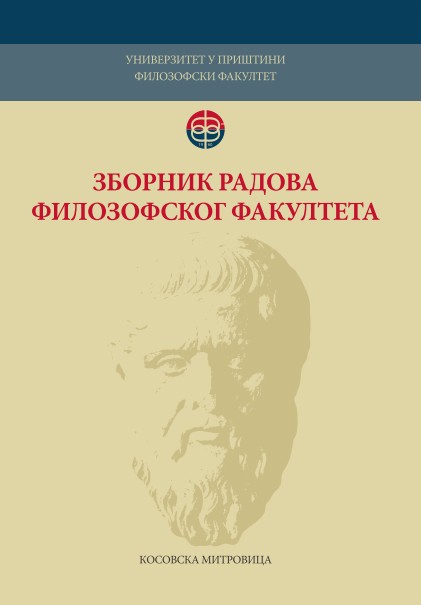Стандардизација, адаптација и примена Плучиковог теста емоција (ПИЕ - ЈРС) у војној популацији – доприноси професора Петра Костића
Standardization, adaptation and application of Plutchik's emotion test (PIE-JRS) in army population: Contributions of professor Petar Kostić
Author(s): Nebojša Milićević, Miroslav Komlenić, Ana JovančevićSubject(s): Social Sciences, Psychology
Published by: Филозофски факултет, Универзитет у Приштини
Keywords: Emotions profile index; EPI-JRS; test standardization; professor Petar Kostić; military psychology
Summary/Abstract: One of the main problems in the application of the Plutchik's test in Serbia and the region of the former Yugoslavia faced by psychologists was the lack of adequate standards. With his standardization and adaptation of this Psychological Measurement Instrument (PIE-JRS), professor Kostić made it more effective and broader in application, especially in the field of military psychology. The paper presents the efforts of professor Kostić to eliminate the existing shortcomings of this test by standardization and adaptation. The special advantage of Yugoslavian revision and standardization, in addition to the improvement of metric characteristics, adaptation of translations, development of special norms on the local population, etc., lay in the extension of the domain of its application. This psychological instrument has been of particular practical use to military psychologists in dealing with the soldier population in various fields such as: selection of personnel for various military duties, detection and prevention of auto-aggressive and sucidal tendencies, psychological counseling and education, assessment of combat motivation and combat stress, prevention and elimination of problems of adaptation, diagnosis, work and rehabilitation of war veterans and civilians with post-dramatic stress syndrome, etc. Using other well-known personality tests and configurable dimension analysis, original breakthroughs like operationalization and isolation of special scales (personality traits) such as: adaptation, simulation tendency, resistance to stress, combat motivation, alcoholism, suicide tendency, etc., came to light. These additional analyses provided useful data for military psychologists and allowed for rapid assessment and effective isolation of risk groups. Also, some of the researches conducted in the country and the surrounding area are listed as illustrations of the possibilities of application of the Pluchik test in military psychology. The paper describes or presents profiles of maladapted soldiers who left the unit arbitrarily during their military service, followed by young men with scars from previous intentional self-harm as well as profiles of wounded and post-traumatized war veterans. Interestingly, similar results were later obtained in the territories of the EU Yugoslavian republics. The results are generally similar and consistent, thus confirming the justification of this standardization and adaptation of this very popular psychological measuring instrument.
Journal: Зборник радова Филозофског факултета у Приштини
- Issue Year: 50/2020
- Issue No: 1
- Page Range: 209-227
- Page Count: 19
- Language: Serbian

